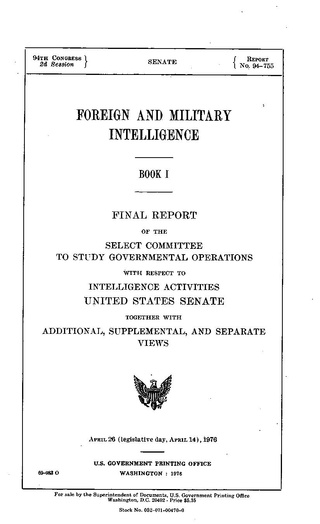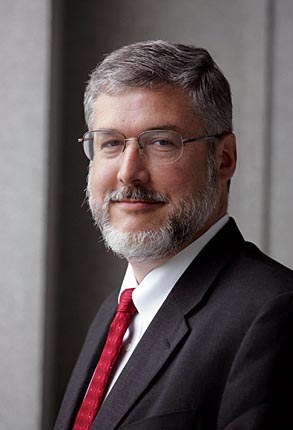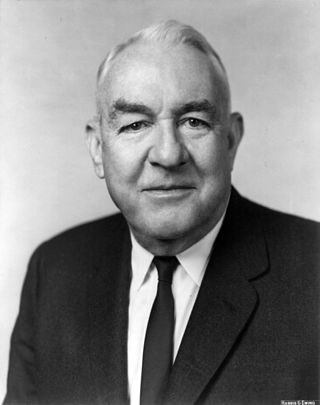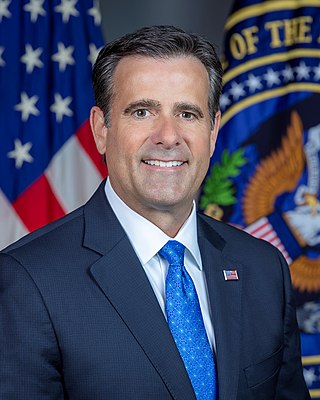Background

Pyle graduated from Bowdoin College (1961) and earned LLB (1964), MA (1966), and PhD (1974) degrees at Columbia University. [1]
Professor Emeritus Christopher H. Pyle | |
|---|---|
| Born | 1939 |
| Nationality | American |
| Education | Bowdoin College (BA) Columbia University (LLB, MA, PhD) |
| Occupation | Professor |
| Known for | 1970 congressional testimony on Army intelligence surveillance on US soil |
| Awards | Polk Award et al. |
| Website | https://www.mtholyoke.edu/people/christopher-pyle |
Christopher H. Pyle (born 1939) is a journalist and professor emeritus of Politics at Mount Holyoke College in South Hadley, Massachusetts. He testified to Congress about the use of military intelligence against civilians, worked for the Senate Judiciary Subcommittee on Constitutional Rights, as well as the Senate Committee on Government Oversight. He is the author of several books and Congressional reports on military intelligence and constitutional rights, and has testified numerous times before the U.S. Congress on issues of deportation and extradition. [1] [2]

Pyle graduated from Bowdoin College (1961) and earned LLB (1964), MA (1966), and PhD (1974) degrees at Columbia University. [1]

In the 1960s, Pyle served in the United States Army as a captain in Army Intelligence Command (now United States Army Intelligence and Security Command). [1]
In the 1960s while an Army captain in intelligence, Pyle learned that "Army intelligence had 1,500 plainclothes agents watching every demonstration of 20 people or more throughout the United States," (as later Pyle recounted on December 19, 2005, on Democracy Now [3] and again on ABC News on January 6, 2006, [4] ) as part of a broad-based program of domestic spying. In January and July 1970, Pyle disclosed the Army's spying in articles that appeared in a new publication, Washington Monthly . The exposé went into syndication in more than 40 newspapers in the USA. While Pyle went on to interview more than 120 anonymous soldiers to document the practices, he himself came under attack in "bureaucratic retaliation" that included a spot on President Richard M. Nixon's "Enemies List." The upshot of investigations into Pyle resulted in the discovery by the Internal Revenue Service (IRS) – that Pyle had overpaid his taxes. [5]
Senator Sam Ervin investigated the Army's spying as chair of the Judiciary Subcommittee on Constitutional Rights, and Pyle worked as an analyst for his committee, testifying to Congress about his own findings (1971-1974). Ervin continued to investigate government activities; together with the Church Committee inquiries, these Congressional studies led to the drafting of the Foreign Intelligence Surveillance Act. Pyle served as a consultant for three Congressional committees in this area: the Subcommittee on Constitutional Rights on the Judiciary Committee (1971-1974), the Committee on Government Operations (1974), the Select Committee to Study Government Operations with Respect to Intelligence Activities (1975-1976). (Later in the 1970s Ervin served as chair of the Congressional committee that conducted hearings on the Watergate scandal.) [1] He also helped draft the Privacy Act of 1974. [5]
Pyle also served as a consultant to the Office of Technology Assessment as well as a constitutional expert before Senate and House Judiciary committees and the Senate Committee on Foreign Relations. [1]

Pyle taught at the John Jay College of Criminal Justice from 1973 to 1976.
Pyle joined the faculty of Mount Holyoke College in 1976. He taught constitutional law, constitutional history, civil liberties, American politics, American political thought, and American bureaucratic politics; he chaired Mount Holyoke's programs in American Studies and Complex Organizations and the Department of Politics (2011-2012). [1] [5] He retired from Mount Holyoke in 2020. [6]
Pyle has taught politics to intelligence agents in the army; to policemen at the John Jay College of Criminal Justice; undergraduates at University College, Dublin; law students at Harvard University, and graduate students at Universidad Complutense de Madrid. [1]
Pyle is a member of the board of directors of the ACLU of Massachusetts. [1]
In 2004, Pyle was elected chairman of the board of the Petra Foundation, a national organization that recognizes and assists "unsung heroes" who make extraordinary contributions to social justice. [1] He also chaired its awards committee. [6]
Awards:
Fellowships and Grants: Pyle has received the following: [1]

Books: Pyle has written several books on military surveillance, extradition, and issues related to the use of torture in intelligence gathering in the US war on terror, including:
Congressional Testimony:
Congressional Reports:
Articles:
Pyle has written for hundreds of newspapers, including the New York Times, Washington Post, Wall Street Journal, and Los Angeles Times, as well as magazines and journals including The Nation, Washington Monthly, Civil Liberties Review, Foreign Policy, American Political Science Review, Political Science Quarterly, and Boston University Law Review, including:

Barbara Sue Boxer is an American politician, lobbyist, and former reporter who served in the United States Senate, representing California from 1993 to 2017. A member of the Democratic Party, she served as the U.S. representative for California's 6th congressional district from 1983 until 1993.

Patrick Joseph Leahy, is an American politician and attorney who represented Vermont in the United States Senate from 1975 to 2023. A member of the Democratic Party, he also was the president pro tempore of the United States Senate from 2012 to 2015 and from 2021 to 2023.

The United States Senate Committee on the Judiciary, informally known as the Senate Judiciary Committee, is a standing committee of 21 U.S. senators whose role is to oversee the Department of Justice (DOJ), consider executive and judicial nominations, and review pending legislation.

The Foreign Intelligence Surveillance Act of 1978 is a United States federal law that establishes procedures for the surveillance and collection of foreign intelligence on domestic soil.

The United States Senate Select Committee on Intelligence is dedicated to overseeing the United States Intelligence Community—the agencies and bureaus of the federal government of the United States that provide information and analysis for leaders of the executive and legislative branches. The Committee was established in 1976 by the 94th Congress.

Charles Edward Potter was a U.S. Representative and a U.S. Senator from the state of Michigan.

Dante Bruno Fascell was an American politician who represented Florida as a member of the United States House of Representatives from 1955 to 1993. He served as chairman of the House Foreign Affairs Committee for nine years.

Alberto R. Gonzales is an American lawyer who served as the 80th United States Attorney General from 2005 to 2007 and is the highest-ranking Hispanic American in executive government to date. He previously served as Secretary of State of Texas, as a Texas Supreme Court Justice, and as White House Counsel, becoming the first Hispanic to hold that office.

The Church Committee was a US Senate select committee in 1975 that investigated abuses by the Central Intelligence Agency (CIA), National Security Agency (NSA), Federal Bureau of Investigation (FBI), and the Internal Revenue Service (IRS). Chaired by Idaho Senator Frank Church (D-ID), the committee was part of a series of investigations into intelligence abuses in 1975, dubbed the "Year of Intelligence", including its House counterpart, the Pike Committee, and the presidential Rockefeller Commission. The committee's efforts led to the establishment of the permanent US Senate Select Committee on Intelligence.
The Permanent Subcommittee on Investigations (PSI), stood up in March 1941 as the "Truman Committee," is the oldest subcommittee of the United States Senate Committee on Homeland Security and Governmental Affairs. After the September 11, 2001, terrorist attacks in the United States, the Committee broadened its title to Homeland Security and Governmental Affairs Committee. PSI led the Committee's broad mandate to "investigate inefficiency, mismanagement, and corruption in Government."

David Spears Addington is an American lawyer who was legal counsel (2001–2005) and chief of staff (2005–2009) to Vice President Dick Cheney. He was the vice president of domestic and economic policy studies at The Heritage Foundation from 2010 to 2016.

Henry Calvin Johnson Jr. is an American lawyer and politician serving as the U.S. representative for Georgia's 4th congressional district since 2007. He is a member of the Democratic Party. The district is anchored in Atlanta's inner eastern suburbs, including Decatur, all of Rockdale County, Lithonia, Stone Mountain, Covington and a sliver of Atlanta itself. Johnson is one of only three Buddhists to have served in the United States Congress. The others are Senator Mazie Hirono and former Representative Colleen Hanabusa, both of Hawaii.
A United States congressional hearing is the principal formal method by which United States congressional committees collect and analyze information in the early stages of legislative policymaking. Whether confirmation hearings, legislative, oversight, investigative, or a combination of these, all hearings share common elements of preparation and conduct. Hearings usually include oral testimony from witnesses and questioning of the witnesses by members of Congress. George B. Galloway termed congressional hearings a goldmine of information for all the public problems of the United States. A leading authority on U.S. government publications has referred to the published hearings as "the most important publications originating within Congress." The Senate Library in a similar vein noted "Hearings are among the most important publications originating in Congress."
United States Intelligence Community Oversight duties are shared by both the executive and legislative branches of the government. Oversight, in this case, is the supervision of intelligence agencies, and making them accountable for their actions. Generally oversight bodies look at the following general issues: following policymaker needs, the quality of analysis, operations, and legality of actions.

Matthew Glen Olsen is an American attorney who has served as the Assistant Attorney General for the National Security Division since 2021. He is the former director of the National Counterterrorism Center.
Robert Elijah Jordan III (1936–2010) was an American lawyer who served as General Counsel of the Army from 1967 to 1971.

Samuel James Ervin Jr. was an American politician who served as a U.S. Senator from North Carolina from 1954 to 1974. A Southern Democrat, he liked to call himself a "country lawyer", and often told humorous stories in his Southern drawl. During his Senate career, Ervin was at first a staunch defender of Jim Crow laws and racial segregation, as the South's constitutional expert during the congressional debates on civil rights. However, unexpectedly, he became a liberal hero for his support of civil liberties. He is remembered for his work in the investigation committees that brought down Senator Joseph McCarthy in 1954 and especially for his leadership of the Senate committee's investigation of the Watergate scandal that led to the resignation of President Richard Nixon in 1974.

John Lee Ratcliffe is an American politician and attorney who served as the Director of National Intelligence from 2020 to 2021. He previously served as the U.S. representative for Texas's 4th district from 2015 to 2020. During his time in Congress, Ratcliffe was regarded as one of the most conservative members. Ratcliffe also served as Mayor of Heath, Texas, from 2004 to 2012 and acting United States Attorney for the Eastern District of Texas from May 2007 to April 2008.
Halkin v. Helms is a landmark 1978 United States Court of Appeals for the District of Columbia Circuit case concerning the State secrets privilege.

Thurgood Marshall was nominated to serve as an associate justice of the Supreme Court of the United States by U.S. President Lyndon B. Johnson on June 13, 1967 to fill the seat being vacated by Tom C. Clark. Per the Constitution of the United States, the nomination was subject to the advice and consent of the United States Senate, which holds the determinant power to confirm or reject nominations to the U.S. Supreme Court. Marshall was confirmed by the U.S. Senate in a 69–11 vote on August 30, 1967, becoming the first African American member of the Court, and the court's first non-white justice.
{{cite journal}}: Cite journal requires |journal= (help){{cite journal}}: Cite journal requires |journal= (help)